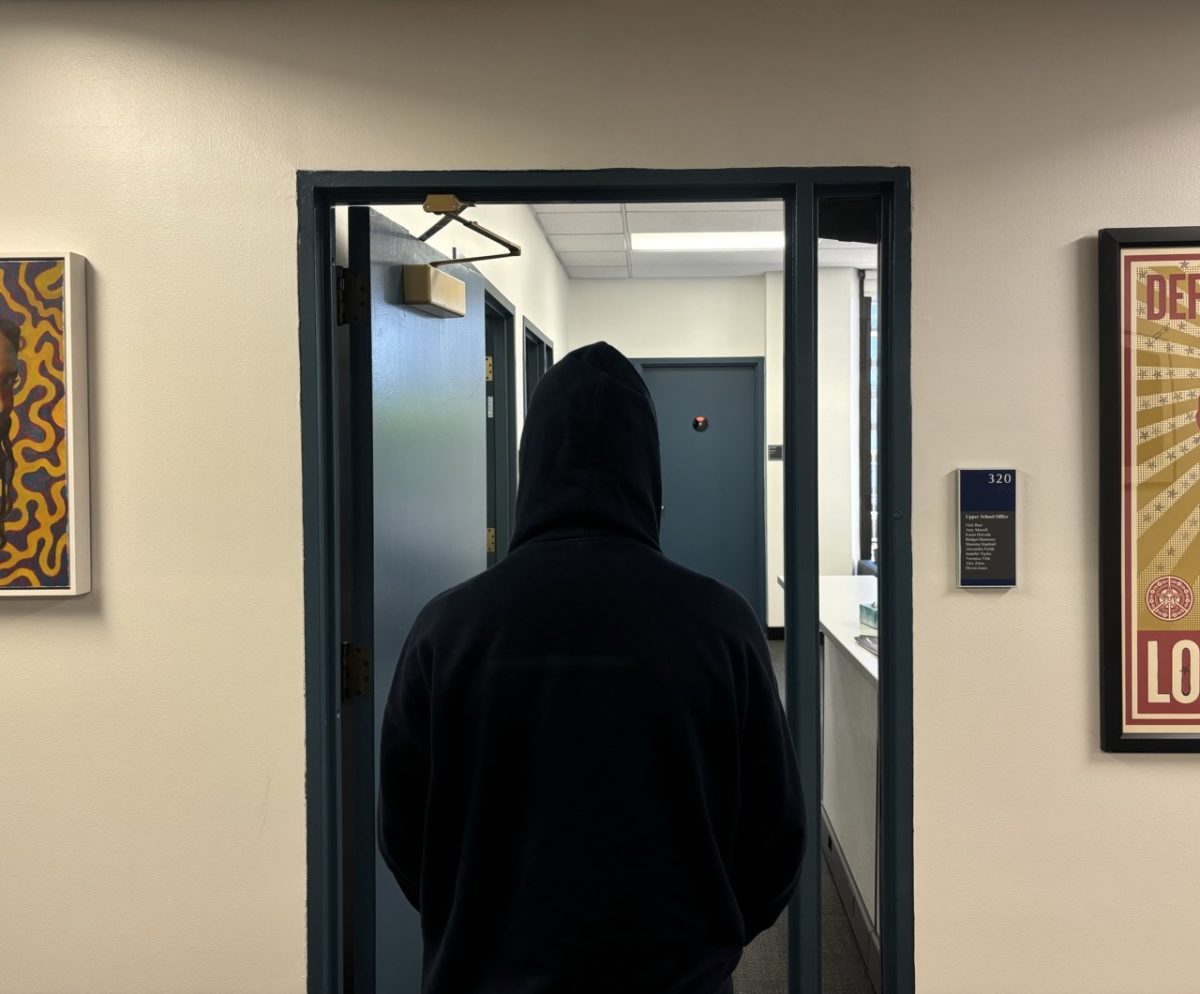After postponing detentions during the pandemic, Latin’s Upper School made the switch back to an active detention policy, which has been in effect for slightly less than a month. The uptick in irresponsible conduct at school—from stealing classroom materials to eating on carpeted floors—motivated the Upper School leadership team to establish a consistent disciplinary procedure.
“Conversations [regarding re-implementing detention policies] were ongoing last year, and then, over the summer, the Upper School team got together with input from various faculty and staff members who were interested to develop a plan that made sense,” Upper School Director Nick Baer said. “It’s kind of a pilot program in the sense that we’ll see how it goes [and] we’ll tweak it as necessary.”
For the new school year, the administration sought to create a disciplinary system that would not burden staff. Upper School English teacher Brandon Woods said, “That old policy was making work for other people. So we would contact facilities and they’d have to figure out things for students to do. Or when we had students shelve books, and they wouldn’t do them correctly, the librarians had to go back and reach out.”
The current policy also aims to prevent punitive bias against any one group of students. Mr. Woods said, “That one’s a big one, making sure people who live far away from school aren’t being disproportionately [impacted]. That’s why we didn’t want to start at 7:30 a.m., right? The other big one is tracking who’s getting detentions and looking at the data to see if there are any populations that are overrepresented.”
The detention reinstatement shocked some members of the student body, especially seniors, who feared that detentions would be reported on their college transcripts. However, detentions are not reported on transcripts or any official documentation unless they lead to larger disciplinary consequences like suspension or expulsion.
Though the switch back to detentions came as a surprise for some, others simply thought of the policy as something to be expected at school. “I actually didn’t really have a reaction, because at my other school, our detentions were worse,” freshman Kayden Jeff said. “You either got an out-of-school suspension, or you got an in-school suspension and stayed in the office all day for doing anything out of the ordinary.”
At Latin, students will only receive an in-school suspension after committing four separate infractions or missing a set of scheduled detentions.
During such detention sessions, students can expect to participate in a silent reflection or to complete a project for the school. Putting aside homework and technology may be beneficial for students who require a moment to think upon their actions, but some students feel that there are better alternatives than chores or quiet reflections.
“You’re not able to study more, do more homework, or become better as a student or as a person—you’re literally just there to sit and reflect and do nothing else,” senior Olivia Weber said. “And I don’t think that’s a very productive way to evolve more as people and as students. If they want to focus on behavioral issues or students as a whole just not having a lot of care, I think that isolation is going to further that even more.”
Some teachers wonder what negative impacts issuing detentions will have on student-teacher connections. “If I just remind somebody not to eat in the hall, and then they have me as a teacher next year, they don’t think twice about that,” Upper School science teacher Jonathan Legendre said. “But maybe if I’ve given them a detention, that starts us off—in either my mind or their mind—in a negative way the next year.”
While administrators may open up to student and faculty feedback as the year progresses, the detention policy will remain steady for the remainder of the first quarter. “Currently, we are not considering alternative methods besides the disciplinary measures we already have in place,” Upper School Assistant Director Karen Horvath said. “One month of implementation does not give us enough time to assess the need for alternative methods or revisions in the plan.”
Mr. Baer said, “Most schools that I am connected with have a detention policy, and we’ve had one for most of our existence. And they’re a very common thing, but to me, it’s just about what’s the right fit for Latin. That’s why we’re trying to take some baby steps to a program here that gives some small but legitimate consequences to certain behaviors.”


















































John Brown • Oct 14, 2024 at 9:23 am
Great first article of the school year, Lucia! I really appreciate Latin’s evolving approach to student discipline and focus in class.
Jonathan Legendre • Oct 2, 2024 at 9:55 am
Nice article, Lucia! To be clear, I was asked if I thought there could be negative impacts of a detention program as part of our conversation. I was able to brainstorm the potential negative consequence mentioned in the piece, but I am hopeful that the detention policy will help curb behaviors that our community finds problematic and feel the pros outweigh the cons.